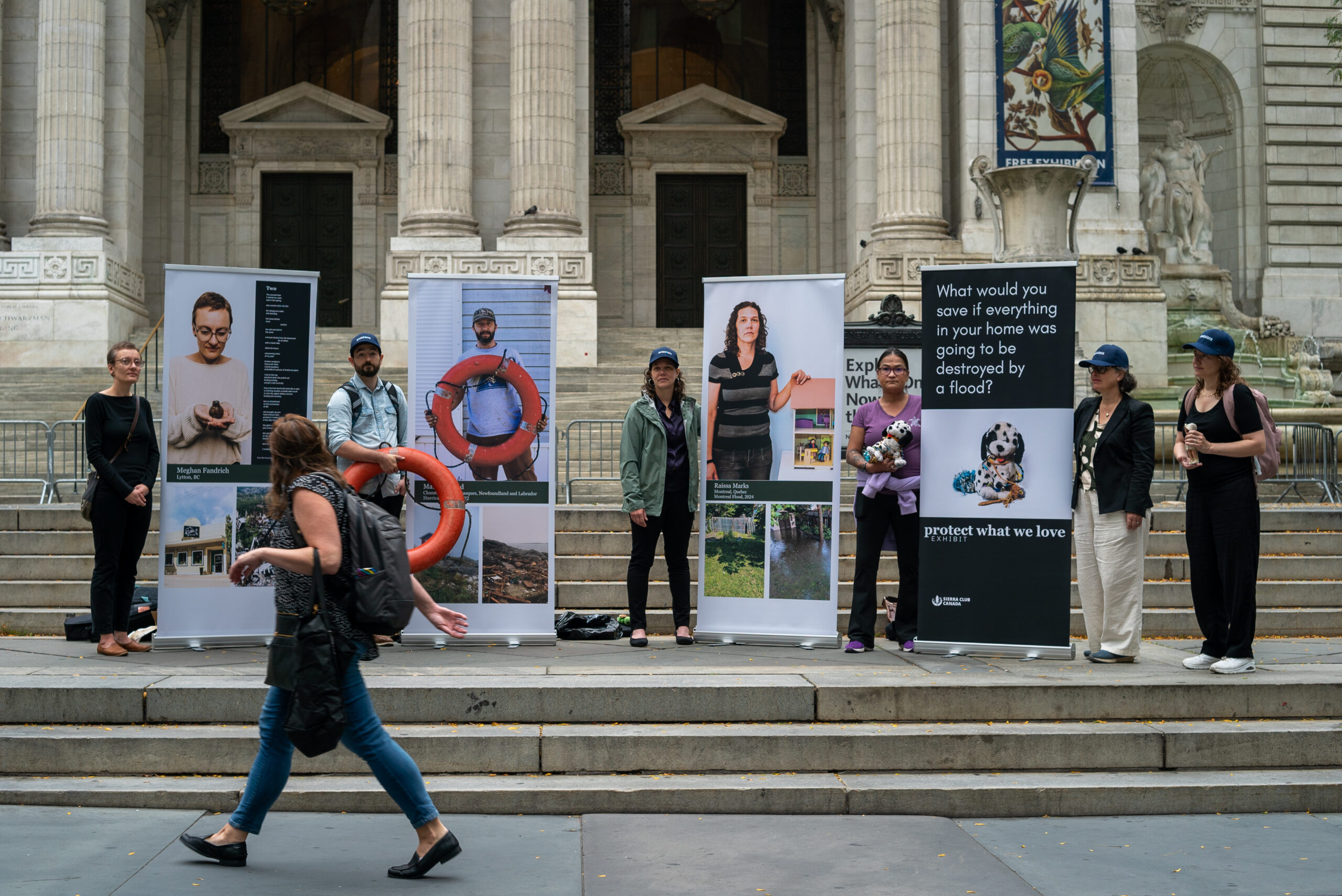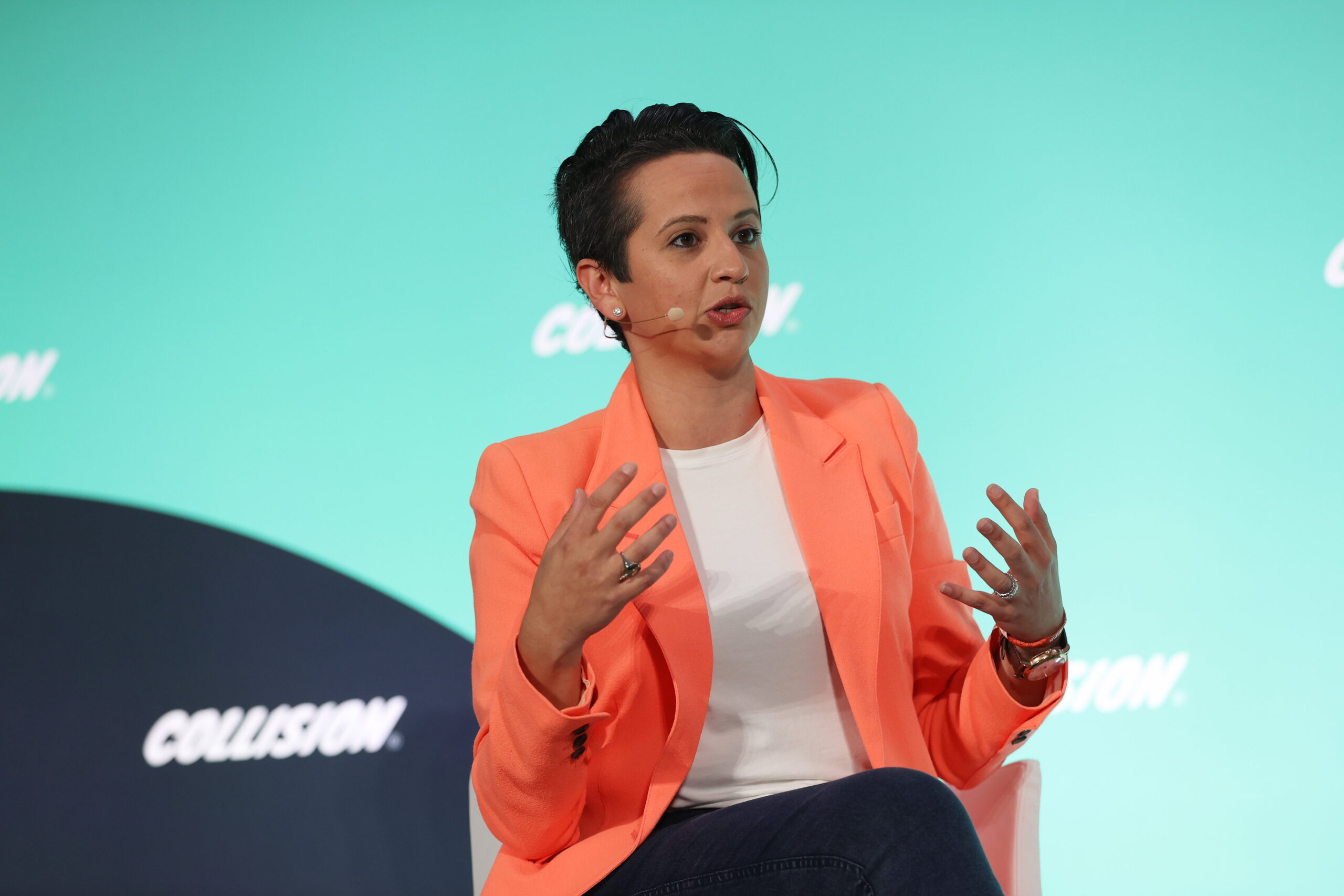
The Narwhal’s in-depth environmental reporting earns 11 national award nominations
From disappearing ice roads to reappearing buffalo, our stories explained the wonder and challenges of...
Get the inside scoop on The Narwhal’s environment and climate reporting by signing up for our free newsletter.
The CEO of one of the country’s largest oil and gas companies says Canada doesn’t need to cap pollution from its oilpatch.
“We’ve been pretty clear that we don’t need a cap,” Cenovus president and CEO Jon McKenzie told The Narwhal on Sept. 24. “We see this as something that further divides provinces, the federal government and industry, and is unnecessary to achieve the goals that the government is trying to achieve.”
McKenzie spoke with The Narwhal the same day Environment and Climate Change Minister Steven Guilbeault told media on Parliament Hill the government would be moving ahead in a “matter of weeks” with presenting draft regulations for the oil and gas emissions cap.
The fossil fuel executive’s comments bring into focus a looming political battle over a long-awaited and significant piece of Canada’s efforts to mitigate the pollution that traps heat in the atmosphere and causes climate change. Cenovus is one of the largest oil and gas producers in Canada, and one of six members of the Pathways Alliance group of oilsands firms.
Although successive federal governments have promised action to mitigate the pollution linked to climate change since the 1990s, Canada has never previously set any binding cap on all greenhouse gas emissions from the oil and gas industry. Over that time, the sector’s pollution has grown and now accounts for 31 per cent of national emissions, according to the Canadian Climate Institute. This is 12 per cent higher than 2005 levels, it said in September.
Increased production has had a significant impact on the rise in emissions.
Canadian oil production reached a record high in 2023 of four million barrels per day, the Canada Energy Regulator said in August. The vast majority of emissions comes from burning fossil fuels for energy, but four-fifths of Canada’s crude oil is exported, meaning those emissions are counted elsewhere.
McKenzie, who was in town to speak on a panel hosted by the Ottawa Board of Trade and the Canadian Chamber of Commerce, told the crowd the industry needs to “solve for carbon.”
“If this is going to be a priority for this country, we have to solve for it, and that can’t be solved by any one group, that needs to be solved by public-private partnerships,” he said.
At the same time, the company, which operates oilsands facilities and other heavy oil sites, offshore operations, conventional oil and gas wells and refineries, expects its own oil production to increase next year.
McKenzie said the industry needs access to new markets “throughout the world, not just the United States” in order to grow and attract investment. “We need access to Asia. We need access to Europe. And that’s very difficult because that involves large infrastructure projects,” he said.
The proposed cap on carbon pollution from oil and gas wasn’t the only government policy he criticized.
“When I look at what’s coming at our industry in the next six months, I’ve got to deal with everything from a carbon cap to methane regulations to volatile organic compound regulations, methane reduction, clean electricity regulations — all of those things stifle development and they stifle investment.”
Methane is also a powerful greenhouse gas emitted by oil and gas operations. The U.S. and Canada have both introduced rules to limit the industry’s methane emissions.

The federal government has acknowledged the emissions cap is “part of a broader suite” of policies meant to decarbonize the oil and gas sector, but has said the cap’s design will take into account other regulations, such as the methane restrictions, and other federal and provincial climate policies.
It said it will cap oil and gas carbon pollution “at a pace and scale necessary to contribute to Canada’s 2030 climate goals” and achieve the legally mandated national greenhouse gas target for 2050 of net-zero emissions.
But the industry has pushed back in various ways ever since the Liberal Party won the 2021 election on a platform to “cap and cut emissions from oil and gas.”
Cenovus, through its lobby group the Pathways Alliance, was involved early on with government consultations over the cap, urging public servants in December 2021 to consider “flexible and cost-effective” rules and to give the industry a “long lead time” to prepare.
Another lobby group Cenovus is a member of, the Canadian Association of Petroleum Producers, told a House of Commons committee studying the issue in spring 2022 it felt the government should “not impose an emissions cap through regulation.”
The government published a “discussion paper” on the cap that summer, asking for public feedback. McKenzie’s predecessor Alex Pourbaix, now the executive chair of Cenovus, told media shortly after the paper was published he felt an emissions cap “could lead to shutting in production at a time when the world is literally crying out for more oil and gas production.” (The federal government has denied this is the cap’s purpose.)
In December 2023 the government released a “framework” for how the emissions cap would work, and again asked for public feedback. Six months later, McKenzie and other oil and gas CEOs appeared at another House of Commons committee, where they reiterated their opposition.
“Cenovus has made a commitment to reduce our emissions by 35 per cent by 2035, and we’re well on our road to achieving those targets … we don’t need an emissions cap,” McKenzie told the committee at the time.
The company says it has committed roughly $100 million to decarbonization projects, but also says it needs “additional certainty” about how the public is going to help pay for the proposed Pathways Alliance carbon capture and storage project before it can move forward with much larger investments needed to meet emissions reduction goals.
“We will do our part, but what we need is a fiscal framework that provides certainty in terms of what the government is going to provide at all levels, both the province and federal government. We haven’t got that yet,” McKenzie told The Narwhal.
And despite the multiple rounds of consultations over the emissions cap the government says it went through, McKenzie said he is still not satisfied.
“Our position hasn’t changed,” he said.

McKenzie said he believed “the regulatory framework is already in place to address the government’s issues” when it comes to the emissions cap. He did not expand on what he meant specifically by regulatory framework.
The Narwhal asked Cenovus to clarify which policies the company believes would be sufficient for the government to achieve its goal of capping oil and gas emissions.
In response, Cenovus sent a statement saying the company “believes Canada needs policy solutions that address the global nature of the problem.”
“We need a carbon policy environment that enables growth in the sector without putting our industry at a competitive disadvantage to other major exporting countries,” the statement read.
“The policy landscape our industry faces right now has layers of complexity. The result is that companies are dealing with uncertainty when looking to make long-term, multi-decade, multi-billion-dollar investments in decarbonization projects and global capital will go where there is certainty.”
International climate negotiations have failed so far to produce a binding agreement that forces countries or their fossil fuel industries to reduce emissions by a certain amount.
Under the Paris Agreement, for example, countries decide themselves what kind of contribution they will make to achieve the treaty’s goals, and the United Nations has found national climate plans have so far been insufficient.
At the end of last year’s climate summit, countries approved the concept of transitioning away from fossil fuels, but didn’t come up with a roadmap to get there, let alone commit to a deadline.
Emissions from burning coal, oil and gas is driving climate change and supercharging heat waves, wildfires, floods and other extreme weather, which is making health hazards, evacuations of communities in particular First Nations, and insurance affordability worse in Canada.
A decade of climate change impacts will erase $25 billion from Canada’s national gross domestic product by 2025, and up to $103 billion by 2055, the Canadian Climate Institute has calculated.
As diplomats gathered in September in New York City for the UN General Assembly, some Canadians who had homes or businesses damaged or destroyed by wildfires and floods were there to call for a cap on oil and gas emissions in Canada.

During his press conference, Guilbeault acknowledged “the oil and gas sector has opposed most of the things we’ve done,” including the emissions cap as well as rules to restrict the carbon content of fuels and promote electric cars.
He accused Conservative Party Leader Pierre Poilievre of “pitching for his rich friends, and oil and gas CEOs” by accepting donations from industry executives during a recent fundraiser.
“I can assure you that oil executives don’t show up to my fundraisers,” Guilbeault said.
An Elections Canada record shows a Conservative Party fundraising event in Banff, Alta., in April 2023, titled “An Evening with Pierre Poilievre,” listed Pourbaix, Cenovus’ executive chair, among other oil and gas executives.
Cenovus told The Narwhal that Pourbaix “purchased a ticket but did not attend.”
The federal Conservatives downplayed the donations from that event, noting the party received 103,550 donations from across Canada between July 2023 and June 2024, and the average contribution was $198.
In a statement, Conservative Party deputy leader Melissa Lantsman said they are committed to eliminating “Justin Trudeau’s carbon tax.”
“While out of touch Justin Trudeau is off doing the talk show circuit, rubbing shoulders with celebrities and global elites in New York, his fanatical activist minister Steven Guilbeault is at home spinning wild conspiracy theories and pushing his radical agenda to quadruple the carbon tax to 61 cents a litre despite skyrocketing food prices and a cost-of-living crisis,” Lantsman wrote.
Poilievre has not detailed exactly which parts of Canada’s carbon pricing system the Conservatives would modify or eliminate if they formed government.
A federal law, which was ruled as constitutional by the Supreme Court of Canada, requires provinces and territories to set up their own carbon pricing systems that meet minimum national standards. The law imposes a backstop system in jurisdictions that fail to implement their own regime.
It prices carbon in two ways, through a fuel charge, of which the government says the money is returned to Canadians in rebate cheques or through support to groups like farmers, and an industrial system for large polluters that is supposed to help pay for projects to cut emissions.
Energy and Natural Resources Minister Jonathan Wilkinson, who also appeared at the press conference with Guilbeault, argued that by eliminating carbon pricing the Conservatives would be “taking money away from those people who actually are the poorest people in Canada,” since family income does not influence the size of the rebate cheques, yet wealthier people typically face higher fuel bills as they can afford to live in larger homes and drive larger vehicles.
“How the heck does that deal with an affordability issue? It is simply ridiculous,” Wilkinson said.
Get the inside scoop on The Narwhal’s environment and climate reporting by signing up for our free newsletter. On a warm September evening nearly 15...
Continue reading
From disappearing ice roads to reappearing buffalo, our stories explained the wonder and challenges of...

Sitting at the crossroads of journalism and code, we’ve found our perfect match: someone who...

The Protecting Ontario by Unleashing Our Economy Act exempts industry from provincial regulations — putting...
